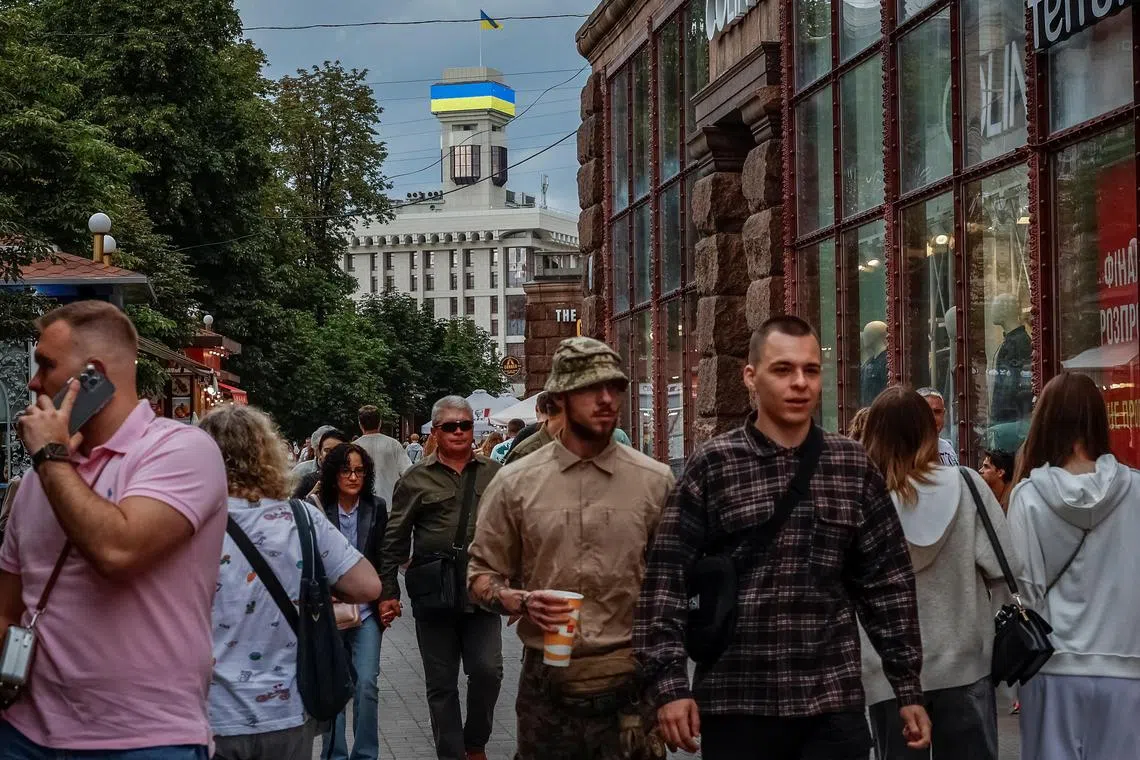Ukraine eases ban on Ukrainian men aged 18 to 22 travelling abroad
Sign up now: Get ST's newsletters delivered to your inbox

People walking in Ukrainian capital Kyiv on Aug 23. According to UN figures, there are more than 5.6 million Ukrainians living abroad.
PHOTO: REUTERS
- Ukrainian men aged 18-22 can now travel abroad during martial law, according to Prime Minister Yulia Svyrydenko on August 26.
- This eases previous restrictions requiring authorisation for men aged 18-60 to leave, aiming to maintain ties with Ukraine.
- The change affects “all citizens” aged 18-22, including those abroad.
AI generated
KYIV – Ukrainian men aged 18 to 22 are now allowed to travel abroad, the Kyiv authorities said on Aug 26, in an easing of a law designed to ensure enough army conscripts to fight Russia’s invasion.
Since the start of Russia’s all-out assault, Ukrainian men aged 18 to 60 have required authorisation to leave Ukraine.
Thousands of men try each year to illegally flee the country, sometimes on risky routes over the borders.
“The government has updated its procedure for crossing national borders. Men aged 18 to 22 can cross the border unhindered during the martial law,” Ukraine’s Prime Minister Yulia Svyrydenko said on Telegram.
She said the decision covered “all citizens” in that age range, including those currently in other countries, who could now return to Ukraine and leave again if they wished.
“We want Ukrainians to maintain their links with Ukraine as much as possible,” Ms Svyrydenko said.
Men aged 18 to 22 are not subject to a national military call-up, which currently has a minimum age of 25 after it was lowered in 2024.
Ukraine’s military has tried to bring in male volunteers under 25 by using financial incentives, but has fallen short of its intake targets.
According to UN figures, there are more than 5.6 million Ukrainians living abroad, most of them in European countries. AFP


